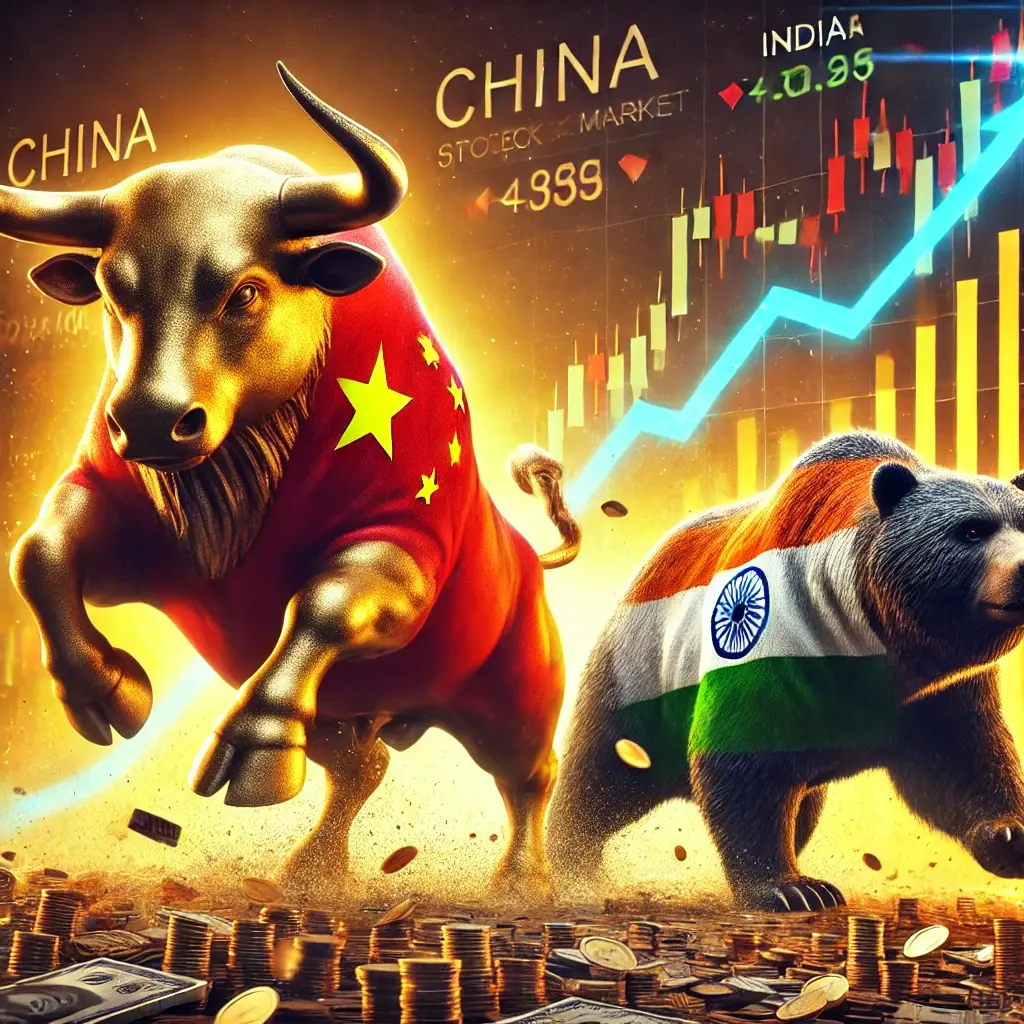
As of February 26, 2025, the Hong Kong Hang Seng Index (HSI) has experienced significant volatility, influenced by recent geopolitical developments. The index reached a three-year high of 23,688.45 points, primarily driven by a tech rally led by companies like Alibaba Group, which has surged over 60% year-to-date. However, the recent introduction of the U.S. "America First Investment Policy" has increased restrictions on China, leading to market sell-offs. Analysts, such as Kevin Liu from CICC Research, advise investors to consider taking profits, noting that sentiment and technical indicators appear overextended. Several key factors have contributed to this surge:
1. Robust Performance of Chinese Technology Stocks
Chinese tech giants, including Alibaba, Meituan, Tencent Holdings, and Baidu, have led the market rally. The Hang Seng Tech Index has surged 27% year-to-date, driven by strong corporate earnings and advancements in artificial intelligence (AI). Alibaba, for instance, reported a significant increase in revenue, reaching $39 billion in the latest quarter, and announced plans to invest $53 billion in cloud computing and AI infrastructure over the next three years.
2. Economic Stimulus Measures from Beijing
The Chinese government's implementation of economic stimulus policies has bolstered investor confidence. These measures have created favorable conditions for Chinese equities, particularly in the technology sector, leading to increased trading volumes and higher stock valuations.
3. Increased Trading Activity and Earnings Growth
Hong Kong Exchanges and Clearing (HKEX) is expected to report a 10% increase in annual earnings, amounting to HK$13 billion ($1.7 billion). This growth is attributed to a significant rise in trading, clearance, and other fees within its equities business, reflecting heightened market activity and investor engagement.
4. Positive Investor Sentiment and Fund Inflows
Investor sentiment has been buoyed by optimism surrounding China's AI developments and a renewed focus on technological innovation. This enthusiasm has attracted substantial fund inflows into Hong Kong's equity markets, further propelling stock prices upward.
In contrast, the Indian stock markets are closed today, February 26, 2025, in observance of Mahashivratri. In the previous trading session, the Sensex ended positively above 74,600 levels, while the Nifty 50 closed in the red, holding around 22,545 points. This mixed performance is attributed to global concerns, particularly heightened apprehensions over U.S. trade policies. As of February 26, 2025, the Nifty 50 index is approximately 14% below its all-time high of 26,277.34 points, recorded on September 27, 2024.
Key Influencing Factors on Indian Markets
Global Economic Concerns: Apprehensions regarding U.S. economic growth and trade policies have exerted downward pressure on the Nifty 50, particularly affecting sectors reliant on exports.
Foreign Investment Trends: Persistent outflows of foreign funds have contributed to market volatility, as international investors reassess their exposure to emerging markets amid global uncertainties.
Sectoral Performance: While technology and metal sectors faced challenges, the financial and automotive sectors provided some resilience, with selective buying leading to minor gains in these areas.
Disclaimer: The information provided in this article is for informational purposes only and should not be considered as financial or investment advice. Stock market investments are subject to risks, and past performance is not indicative of future results. Readers are advised to conduct their own research and consult with a qualified financial advisor before making any investment decisions. The author and publisher are not responsible for any financial losses incurred based on the information provided in this article




